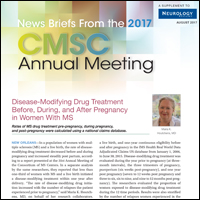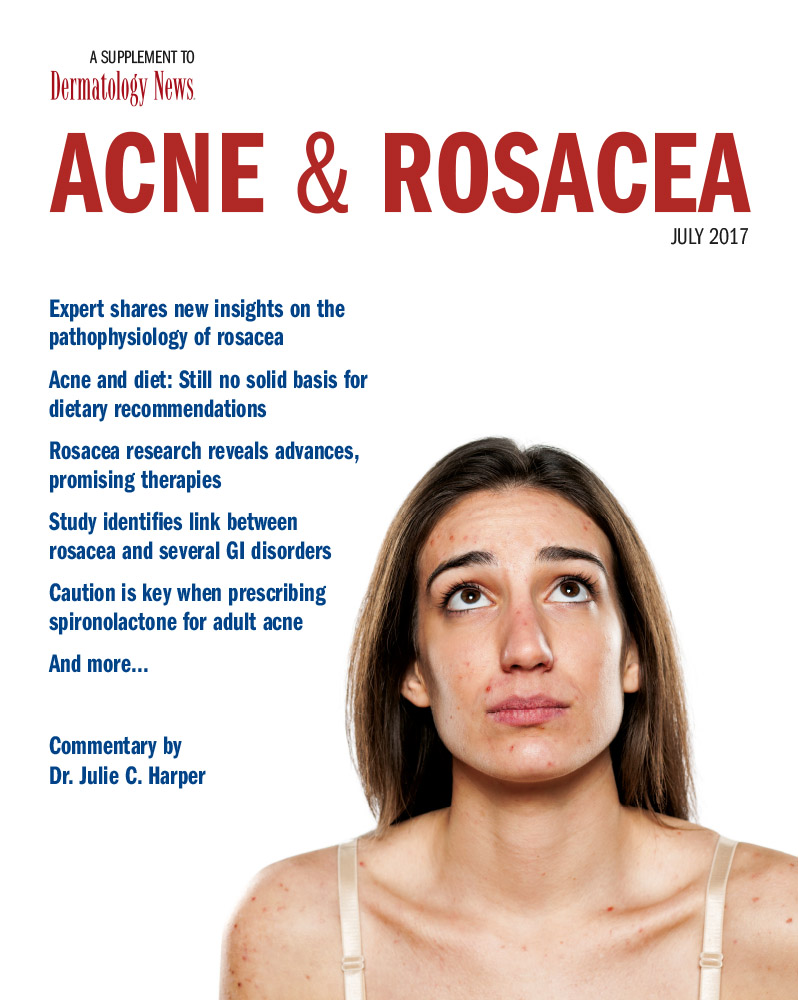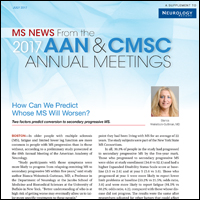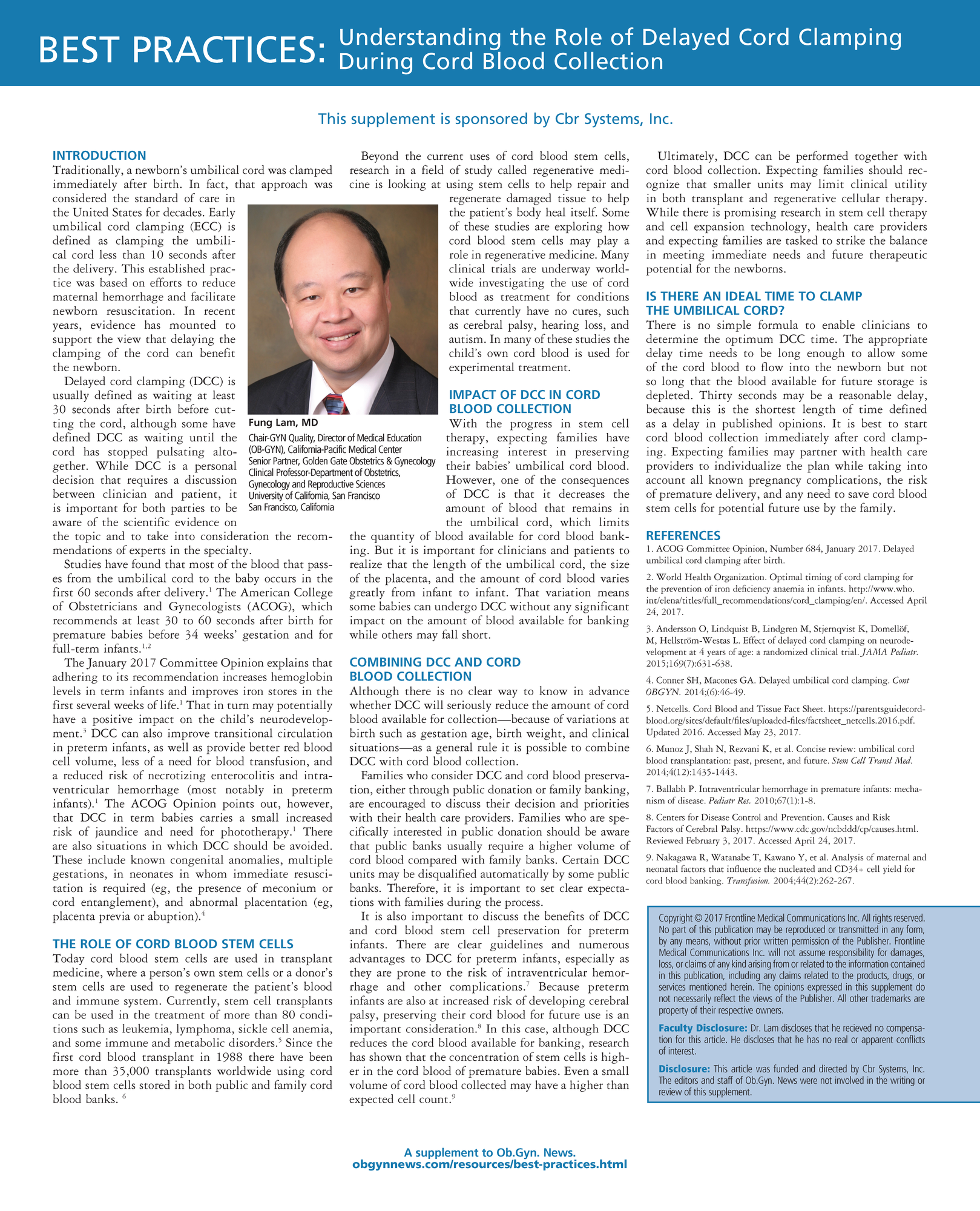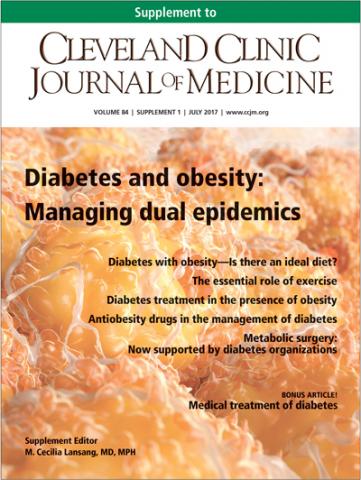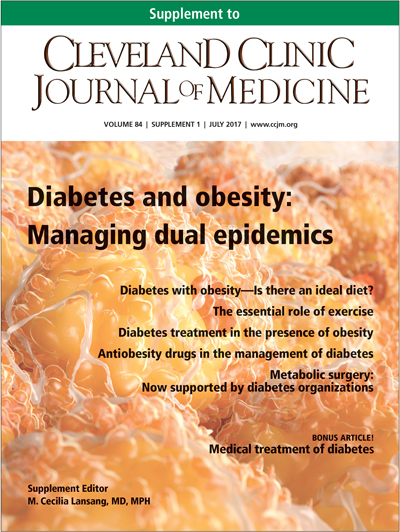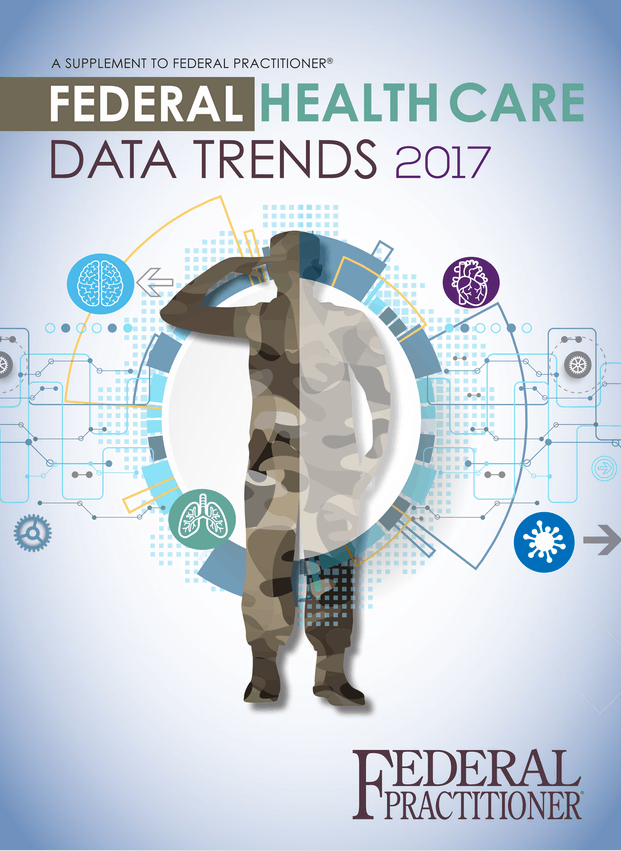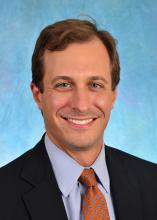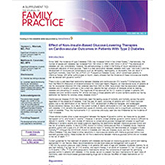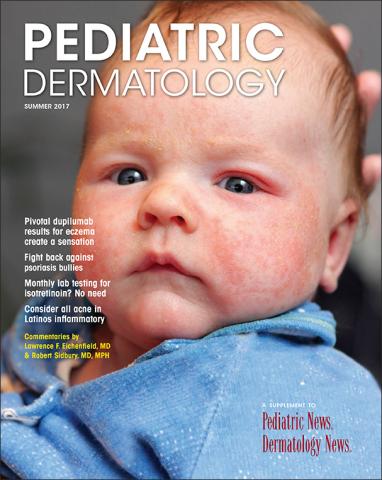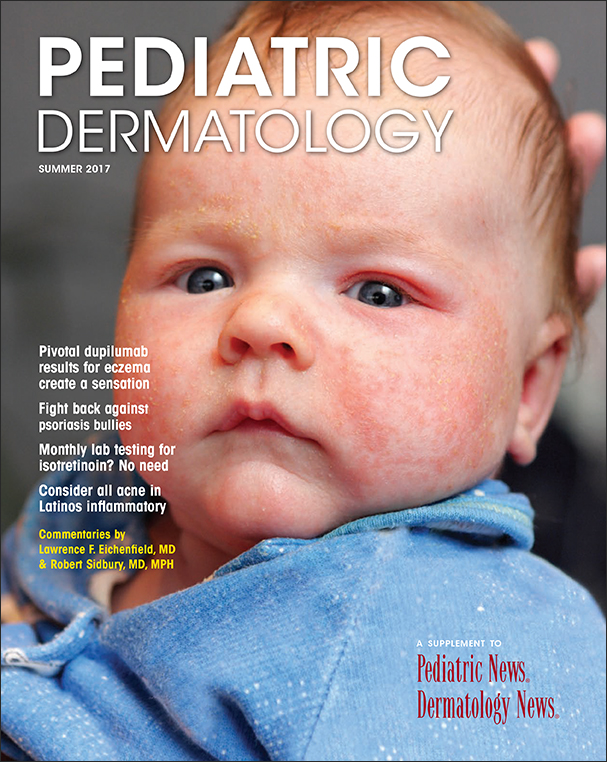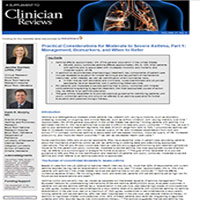User login
News Briefs From the 2017 CMSC Annual Meeting
Acne & Rosacea: July 2017
A supplement to Dermatology News
Articles include:
- Expert shares new insights on the pathophysiology of rosacea
- Acne and diet: Still no solid basis for dietary recommendations
- Rosacea research reveals advances, promising therapies
- Study identifies link between rosacea and several GI disorders
- Caution is key when prescribing spironolactone for adult acne
- Commentary by Dr. Julie C. Harper
- And more …
Faculty:
Julie C. Harper, M.D.
Dr. Harper is a dermatologist in private practice in Alabama at the Dermatology and Skin Care Center of Birmingham. She was a member of the American Academy of Dermatology work group that developed the AAD’s updated guidelines for the management of acne vulgaris, published in February 2016, and is the current president of the American Acne & Rosacea Society. She is also a clinical associate professor at the University of Alabama, Birmingham. Dr. Harper has been a speaker for Allergan, Bayer, Galderma, La Roche-Posay, SkinCeuticals, and Valeant Pharmaceuticals. She is also an investigator for Bayer and an advisory board member for Allergan, Bayer, BioPharmX, Galderma, and Valeant.
Click here to view the supplement
©Copyright 2017, by Frontline Medical Communications Inc. All rights reserved.
A supplement to Dermatology News
Articles include:
- Expert shares new insights on the pathophysiology of rosacea
- Acne and diet: Still no solid basis for dietary recommendations
- Rosacea research reveals advances, promising therapies
- Study identifies link between rosacea and several GI disorders
- Caution is key when prescribing spironolactone for adult acne
- Commentary by Dr. Julie C. Harper
- And more …
Faculty:
Julie C. Harper, M.D.
Dr. Harper is a dermatologist in private practice in Alabama at the Dermatology and Skin Care Center of Birmingham. She was a member of the American Academy of Dermatology work group that developed the AAD’s updated guidelines for the management of acne vulgaris, published in February 2016, and is the current president of the American Acne & Rosacea Society. She is also a clinical associate professor at the University of Alabama, Birmingham. Dr. Harper has been a speaker for Allergan, Bayer, Galderma, La Roche-Posay, SkinCeuticals, and Valeant Pharmaceuticals. She is also an investigator for Bayer and an advisory board member for Allergan, Bayer, BioPharmX, Galderma, and Valeant.
Click here to view the supplement
©Copyright 2017, by Frontline Medical Communications Inc. All rights reserved.
A supplement to Dermatology News
Articles include:
- Expert shares new insights on the pathophysiology of rosacea
- Acne and diet: Still no solid basis for dietary recommendations
- Rosacea research reveals advances, promising therapies
- Study identifies link between rosacea and several GI disorders
- Caution is key when prescribing spironolactone for adult acne
- Commentary by Dr. Julie C. Harper
- And more …
Faculty:
Julie C. Harper, M.D.
Dr. Harper is a dermatologist in private practice in Alabama at the Dermatology and Skin Care Center of Birmingham. She was a member of the American Academy of Dermatology work group that developed the AAD’s updated guidelines for the management of acne vulgaris, published in February 2016, and is the current president of the American Acne & Rosacea Society. She is also a clinical associate professor at the University of Alabama, Birmingham. Dr. Harper has been a speaker for Allergan, Bayer, Galderma, La Roche-Posay, SkinCeuticals, and Valeant Pharmaceuticals. She is also an investigator for Bayer and an advisory board member for Allergan, Bayer, BioPharmX, Galderma, and Valeant.
Click here to view the supplement
©Copyright 2017, by Frontline Medical Communications Inc. All rights reserved.
MS News From the AAN & CMSC Annual Meetings
Best Practices: Understanding the Role of Delayed Cord Clamping During Cord Blood Collection
Click Here to Read Supplement.
Topics Include:
- The Role of Cord Blood Stem Cells
- Impact of DCC in Cord Blood Collection
- Combining DCC and Cord Blood Collection
- When to Clamp the Umbilical Cord
Faculty/Faculty Disclosure:
Fung Lam, MD
Chair-GYN Quality, Director of Medical Education (OB-GYN), California-Pacific Medical Center
Senior Partner, Golden Gate Obstetrics & Gynecology
Clinical Professor-Department of Obstetrics, Gynecology and Reproductive Sciences
University of California, San Francisco
San Francisco, California
Click Here to Read Supplement.
Topics Include:
- The Role of Cord Blood Stem Cells
- Impact of DCC in Cord Blood Collection
- Combining DCC and Cord Blood Collection
- When to Clamp the Umbilical Cord
Faculty/Faculty Disclosure:
Fung Lam, MD
Chair-GYN Quality, Director of Medical Education (OB-GYN), California-Pacific Medical Center
Senior Partner, Golden Gate Obstetrics & Gynecology
Clinical Professor-Department of Obstetrics, Gynecology and Reproductive Sciences
University of California, San Francisco
San Francisco, California
Click Here to Read Supplement.
Topics Include:
- The Role of Cord Blood Stem Cells
- Impact of DCC in Cord Blood Collection
- Combining DCC and Cord Blood Collection
- When to Clamp the Umbilical Cord
Faculty/Faculty Disclosure:
Fung Lam, MD
Chair-GYN Quality, Director of Medical Education (OB-GYN), California-Pacific Medical Center
Senior Partner, Golden Gate Obstetrics & Gynecology
Clinical Professor-Department of Obstetrics, Gynecology and Reproductive Sciences
University of California, San Francisco
San Francisco, California
Diabetes and obesity: Managing dual epidemics
Supplement Editor:
M. Cecilia Lansang, MD, MPH
Contents
Diabetes and obesity: Managing dual epidemics
M. Cecilia Lansang, MD, MPH
Diabetes with obesity—Is there an ideal diet?
Zahrae Sandouk and M. Cecilia Lansang
The essential role of exercise in the management of type 2 diabetes
John P. Kirwan, Jessica Sacks, and Stephan Nieuwoudt
Optimizing diabetes treatment in the presence of obesity
Mary Angelynne Esquivel and M. Cecilia Lansang
Antiobesity drugs in the management of type 2 diabetes: A shift in thinking?
Bartolome Burguera, Khawla F. Ali, and Juan P. Brito
Metabolic surgery for treating type 2 diabetes mellitus: Now supported by the world's leading diabetes organizations
Philip R. Schauer, Zubaidah Nor Hanipah, and Francesco Rubino
— Bonus Article —Medical Treatment of Diabetes Mellitus
Mario Skugor
Supplement Editor:
M. Cecilia Lansang, MD, MPH
Contents
Diabetes and obesity: Managing dual epidemics
M. Cecilia Lansang, MD, MPH
Diabetes with obesity—Is there an ideal diet?
Zahrae Sandouk and M. Cecilia Lansang
The essential role of exercise in the management of type 2 diabetes
John P. Kirwan, Jessica Sacks, and Stephan Nieuwoudt
Optimizing diabetes treatment in the presence of obesity
Mary Angelynne Esquivel and M. Cecilia Lansang
Antiobesity drugs in the management of type 2 diabetes: A shift in thinking?
Bartolome Burguera, Khawla F. Ali, and Juan P. Brito
Metabolic surgery for treating type 2 diabetes mellitus: Now supported by the world's leading diabetes organizations
Philip R. Schauer, Zubaidah Nor Hanipah, and Francesco Rubino
— Bonus Article —Medical Treatment of Diabetes Mellitus
Mario Skugor
Supplement Editor:
M. Cecilia Lansang, MD, MPH
Contents
Diabetes and obesity: Managing dual epidemics
M. Cecilia Lansang, MD, MPH
Diabetes with obesity—Is there an ideal diet?
Zahrae Sandouk and M. Cecilia Lansang
The essential role of exercise in the management of type 2 diabetes
John P. Kirwan, Jessica Sacks, and Stephan Nieuwoudt
Optimizing diabetes treatment in the presence of obesity
Mary Angelynne Esquivel and M. Cecilia Lansang
Antiobesity drugs in the management of type 2 diabetes: A shift in thinking?
Bartolome Burguera, Khawla F. Ali, and Juan P. Brito
Metabolic surgery for treating type 2 diabetes mellitus: Now supported by the world's leading diabetes organizations
Philip R. Schauer, Zubaidah Nor Hanipah, and Francesco Rubino
— Bonus Article —Medical Treatment of Diabetes Mellitus
Mario Skugor
Federal Health Care Data Trends 2017
Effect of Non–Insulin-Based Glucose-Lowering Therapies on Cardiovascular Outcomes in Patients With Type 2 Diabetes
While type 2 diabetes (T2D) is commonly seen in primary care, it is difficult to control successfully over time. This series offers brief eNewsletters written by clinical experts that are designed to assist in the clinical management of patients with T2D.
This fourth eNewsletter in the series, entitled Effect of Non–Insulin-Based Glucose-Lowering Therapies on Cardiovascular Outcomes in Patients With Type 2 Diabetes, was written by Szymon L. Wiernek, MD, PhD, and Matthew A. Cavender, MD, MPH. It presents an overview of commonly used non–insulin-based glucose-lowering drugs in the context of cardiovascular disease risk. The basic mechanisms of action for each pharmacotherapeutic class and the effects of these medications on cardiovascular events are discussed so that physicians can make informed treatment decisions
Click here to read the supplement
Department of Medicine University of North Carolina-Chapel Hill
Chapel Hill, NC
Department of Medicine University of North Carolina-Chapel Hill
Chapel Hill, NC
While type 2 diabetes (T2D) is commonly seen in primary care, it is difficult to control successfully over time. This series offers brief eNewsletters written by clinical experts that are designed to assist in the clinical management of patients with T2D.
This fourth eNewsletter in the series, entitled Effect of Non–Insulin-Based Glucose-Lowering Therapies on Cardiovascular Outcomes in Patients With Type 2 Diabetes, was written by Szymon L. Wiernek, MD, PhD, and Matthew A. Cavender, MD, MPH. It presents an overview of commonly used non–insulin-based glucose-lowering drugs in the context of cardiovascular disease risk. The basic mechanisms of action for each pharmacotherapeutic class and the effects of these medications on cardiovascular events are discussed so that physicians can make informed treatment decisions
Click here to read the supplement
Department of Medicine University of North Carolina-Chapel Hill
Chapel Hill, NC
Department of Medicine University of North Carolina-Chapel Hill
Chapel Hill, NC
While type 2 diabetes (T2D) is commonly seen in primary care, it is difficult to control successfully over time. This series offers brief eNewsletters written by clinical experts that are designed to assist in the clinical management of patients with T2D.
This fourth eNewsletter in the series, entitled Effect of Non–Insulin-Based Glucose-Lowering Therapies on Cardiovascular Outcomes in Patients With Type 2 Diabetes, was written by Szymon L. Wiernek, MD, PhD, and Matthew A. Cavender, MD, MPH. It presents an overview of commonly used non–insulin-based glucose-lowering drugs in the context of cardiovascular disease risk. The basic mechanisms of action for each pharmacotherapeutic class and the effects of these medications on cardiovascular events are discussed so that physicians can make informed treatment decisions
Click here to read the supplement
Department of Medicine University of North Carolina-Chapel Hill
Chapel Hill, NC
Department of Medicine University of North Carolina-Chapel Hill
Chapel Hill, NC
Pediatric Dermatology: Summer 2017
An editorial supplement to Pediatric News and Dermatology News
Articles include:
- Pivotal dupilumab results for eczema create a sensation
- Fight back against psoriasis bullies
- Monthly lab testing for isotretinoin? No need
- Consider all acne in Latinos inflammatory
- Commentaries from Lawrence F. Eichenfield, MD & Robert Sidbury, MD, MPH
- And more …
Faculty:
Lawrence F. Eichenfield, M.D.
Dr. Eichenfield is in the division of pediatric and adolescent dermatology at Rady Children’s Hospital–San Diego, and the University of California, San Diego. Relative to the commentaries, Dr. Eichenfield disclosed he has served as a consultant for Pfizer.
Robert Sidbury, MD, MPH
Dr. Sidbury is chief of dermatology at Seattle Children’s Hospital and professor, department of pediatrics, University of Washington, Seattle. Relative to the commentaries, Dr. Sidbury disclosed he has served as site primary investigator on phase III trials of crisaborole.
©Copyright 2017, by Frontline Medical Communications Inc. All rights reserved.
An editorial supplement to Pediatric News and Dermatology News
Articles include:
- Pivotal dupilumab results for eczema create a sensation
- Fight back against psoriasis bullies
- Monthly lab testing for isotretinoin? No need
- Consider all acne in Latinos inflammatory
- Commentaries from Lawrence F. Eichenfield, MD & Robert Sidbury, MD, MPH
- And more …
Faculty:
Lawrence F. Eichenfield, M.D.
Dr. Eichenfield is in the division of pediatric and adolescent dermatology at Rady Children’s Hospital–San Diego, and the University of California, San Diego. Relative to the commentaries, Dr. Eichenfield disclosed he has served as a consultant for Pfizer.
Robert Sidbury, MD, MPH
Dr. Sidbury is chief of dermatology at Seattle Children’s Hospital and professor, department of pediatrics, University of Washington, Seattle. Relative to the commentaries, Dr. Sidbury disclosed he has served as site primary investigator on phase III trials of crisaborole.
©Copyright 2017, by Frontline Medical Communications Inc. All rights reserved.
An editorial supplement to Pediatric News and Dermatology News
Articles include:
- Pivotal dupilumab results for eczema create a sensation
- Fight back against psoriasis bullies
- Monthly lab testing for isotretinoin? No need
- Consider all acne in Latinos inflammatory
- Commentaries from Lawrence F. Eichenfield, MD & Robert Sidbury, MD, MPH
- And more …
Faculty:
Lawrence F. Eichenfield, M.D.
Dr. Eichenfield is in the division of pediatric and adolescent dermatology at Rady Children’s Hospital–San Diego, and the University of California, San Diego. Relative to the commentaries, Dr. Eichenfield disclosed he has served as a consultant for Pfizer.
Robert Sidbury, MD, MPH
Dr. Sidbury is chief of dermatology at Seattle Children’s Hospital and professor, department of pediatrics, University of Washington, Seattle. Relative to the commentaries, Dr. Sidbury disclosed he has served as site primary investigator on phase III trials of crisaborole.
©Copyright 2017, by Frontline Medical Communications Inc. All rights reserved.
Practical Considerations for Moderate to Severe Asthma, Part 1: Management, Biomarkers, and When to Refer
This newsletter, Practical Considerations for Moderate to Severe Asthma, Part 1: Management, Biomarkers, and When to Refer, provides detailed guidance for nurse practitioners and physician assistants on how to identify, evaluate, and treat patients with poorly controlled, moderate to severe asthma.
Click here to read the supplement
Clinical Research Coordinator
Boys Town National Research Hospital
Boys Town, Nebraska
Kevin R. Murphy, MD
Director of Allergy, Asthma, and Pulmonary Research
Boys Town National Research Hospital
Boys Town, Nebraska
Department of Pediatrics
University of Nebraska Medical Center
Creighton University School of Medicine
Omaha, Nebraska
This newsletter, Practical Considerations for Moderate to Severe Asthma, Part 1: Management, Biomarkers, and When to Refer, provides detailed guidance for nurse practitioners and physician assistants on how to identify, evaluate, and treat patients with poorly controlled, moderate to severe asthma.
Click here to read the supplement
Clinical Research Coordinator
Boys Town National Research Hospital
Boys Town, Nebraska
Kevin R. Murphy, MD
Director of Allergy, Asthma, and Pulmonary Research
Boys Town National Research Hospital
Boys Town, Nebraska
Department of Pediatrics
University of Nebraska Medical Center
Creighton University School of Medicine
Omaha, Nebraska
This newsletter, Practical Considerations for Moderate to Severe Asthma, Part 1: Management, Biomarkers, and When to Refer, provides detailed guidance for nurse practitioners and physician assistants on how to identify, evaluate, and treat patients with poorly controlled, moderate to severe asthma.
Click here to read the supplement
Clinical Research Coordinator
Boys Town National Research Hospital
Boys Town, Nebraska
Kevin R. Murphy, MD
Director of Allergy, Asthma, and Pulmonary Research
Boys Town National Research Hospital
Boys Town, Nebraska
Department of Pediatrics
University of Nebraska Medical Center
Creighton University School of Medicine
Omaha, Nebraska
